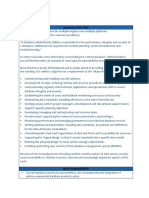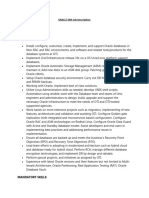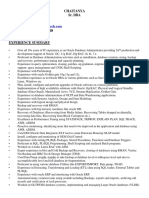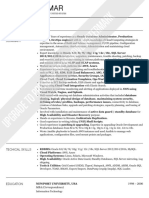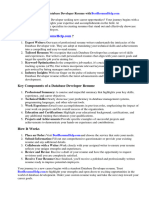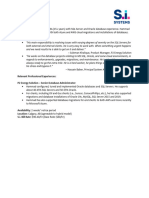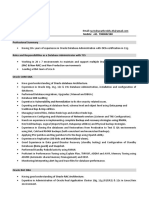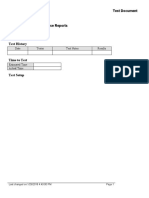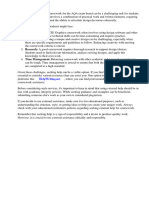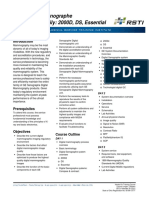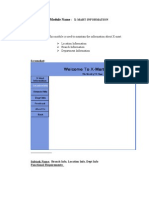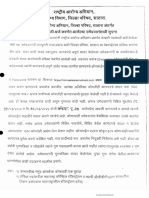0% found this document useful (0 votes)
22 views3 pagesExperience As DBA in Managing Oracle DB
The document outlines the qualifications and responsibilities for a Database Administrator (DBA) position, emphasizing experience with Oracle DB, MySQL, and SQL Server. Key responsibilities include backup and recovery, performance optimization, security compliance, and automation of database processes. The role requires a Bachelor's degree in Computer Science or Information Technology and a willingness to work in Marilao Bulacan.
Uploaded by
rap0777Copyright
© © All Rights Reserved
We take content rights seriously. If you suspect this is your content, claim it here.
Available Formats
Download as DOCX, PDF, TXT or read online on Scribd
0% found this document useful (0 votes)
22 views3 pagesExperience As DBA in Managing Oracle DB
The document outlines the qualifications and responsibilities for a Database Administrator (DBA) position, emphasizing experience with Oracle DB, MySQL, and SQL Server. Key responsibilities include backup and recovery, performance optimization, security compliance, and automation of database processes. The role requires a Bachelor's degree in Computer Science or Information Technology and a willingness to work in Marilao Bulacan.
Uploaded by
rap0777Copyright
© © All Rights Reserved
We take content rights seriously. If you suspect this is your content, claim it here.
Available Formats
Download as DOCX, PDF, TXT or read online on Scribd
/ 3



